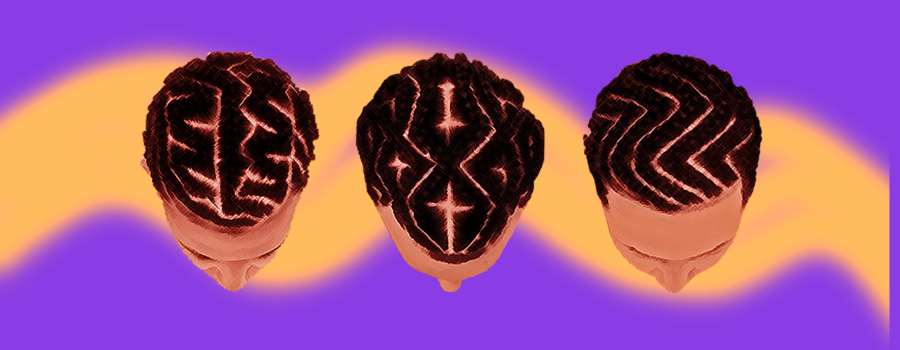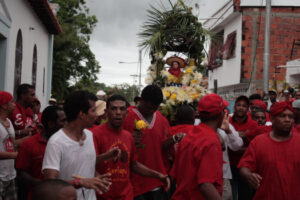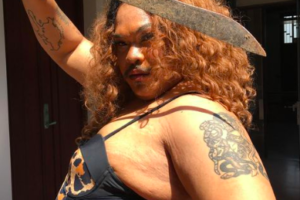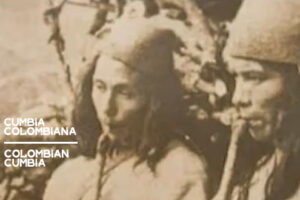By: Meyby Ugueto. Insurgent braids collective
Capuchinos subway station. A man with a black complexion and afro hair, chats with his partner, a woman with a white complexion and straight hair, while they observe a woman of African descent who wears her hair in a natural way, that is, without changes in the curly and voluminous texture. He asks her, “How do you get your hair like that, so that the little curl forms? From there begins a conversation about the procedures for styling curly hair, revealing the father’s interest in these issues and strengthening stances against racism and discrimination.
What was so special about the question? Not only was it the ease with which this topic was made public without the laughter and ridicule that would have been experienced 20 years ago, but this time the question was asked by a dad interested in acquiring tools to help his daughter wear her hair in a way that he values as positive. This couple was not looking to subdue their daughter’s “unruly” hair; or to diminish the “frizz” that “beauty” products promise so often; or to solve the problem that arises at school, when teachers insist on “fixing” girls’ hair, or cutting the hair of boys who wear big afro’s. In this opportunity there was a listener who could respond to the interested father, from the empowerment and self-worth of feeling beautiful and proud of her blackness, represented through her hair. Because at the end of the day, “Every aesthetic act is also political. Aesthetically, your image shows what you stand for”.
Grandmothers, mothers, aunts and female cousins learn and imitate protocols, either reproducing racist ideology or against it, which take the form of long and painful procedures to straighten the hair, or beautiful, creative and laborious hairstyles that highlight our origins in Barlovento or any other black town or region of the country.
It’s true that the spaces of feminine intimacy that are built through the action of combing are substantial and that the transmission of important cultural and subjective contents of the afro population are engaged in these dynamics. However, this father’s interest in learning how to do his daughter’s hair in a style in tune with his cultural matrix led me to question how we can also deprive men, and they in turn deprive themselves, of new spaces with their daughters in which self-love is at stake. If we are talking about improving human relationships, then a revision of masculinities is also valid.
Fathers can help strengthen their daughters’ self-esteem by positively valuing their hair and image as black women. The daughter of this couple who made public one of the Gordian knots of endorracism will surely have more subjective tools to face discrimination when questioned about who she is because of her physical appearance and cultural origins. Surely, she will remember her father accompanying her in the construction that, as a black woman, she will have made of herself, from self-love and love for her culture.
———————————-
Facebook Trenzas Insurgentes / Twitter @trenzasinsurgen
Write to us at trenzasinsurgentes@gmail.com
Published on March 19th, 2018 by CiudadCCS. Read from the original in Spanish (page 09).
















